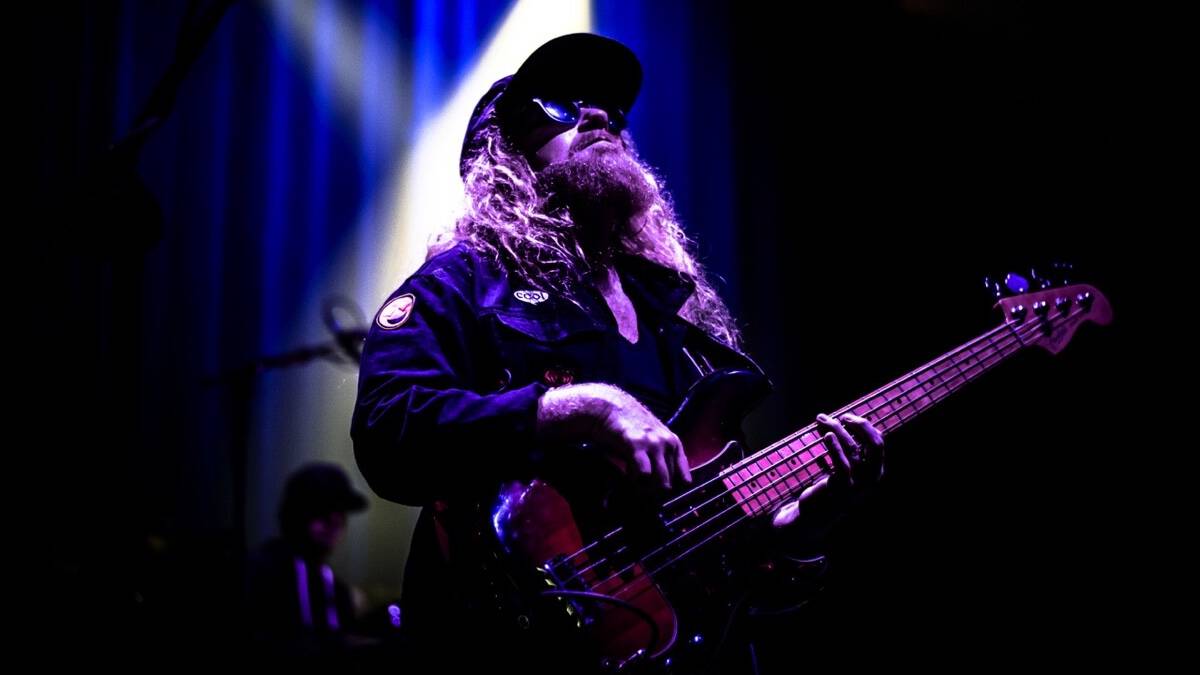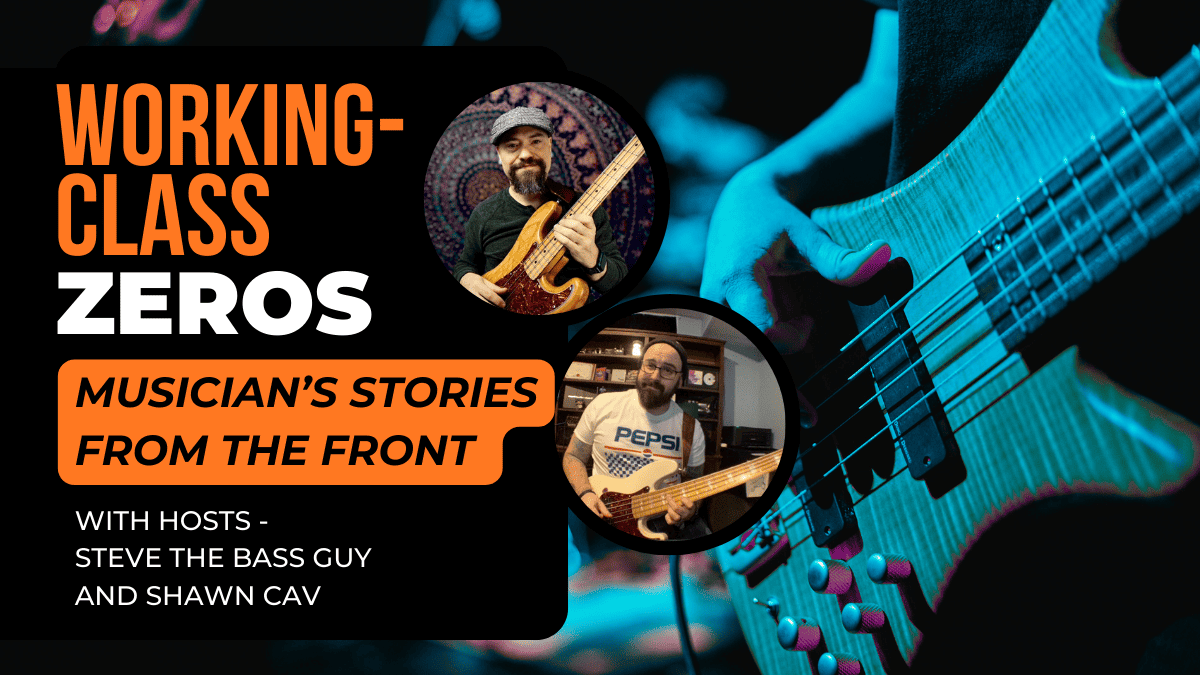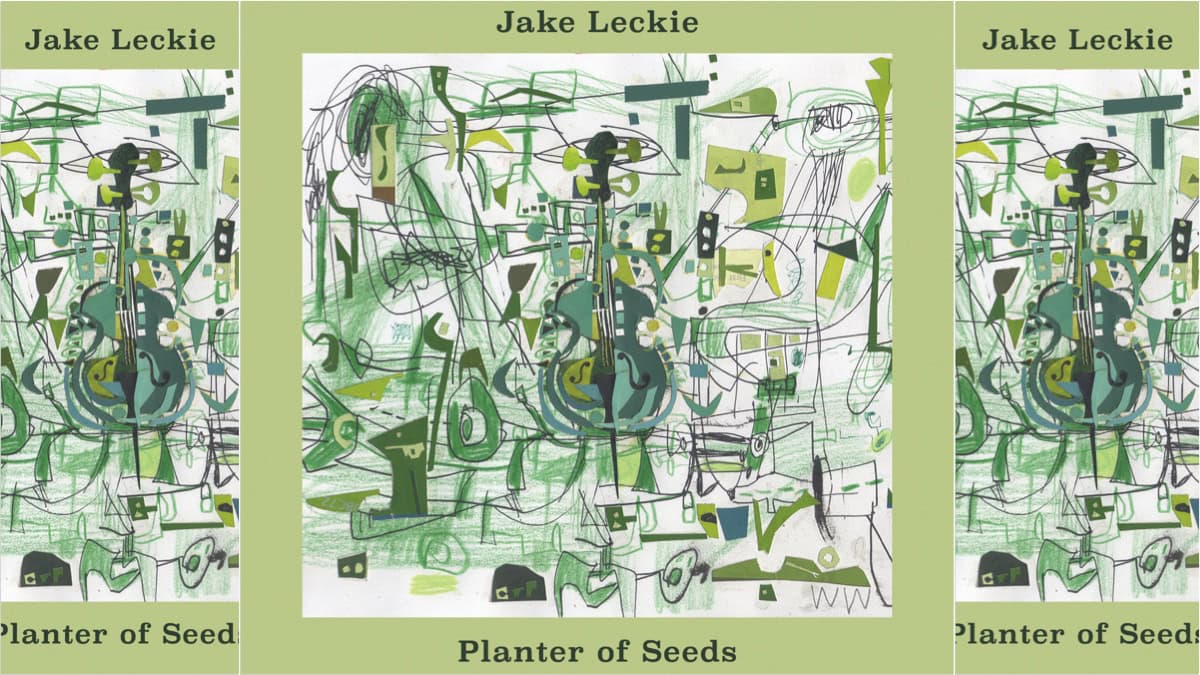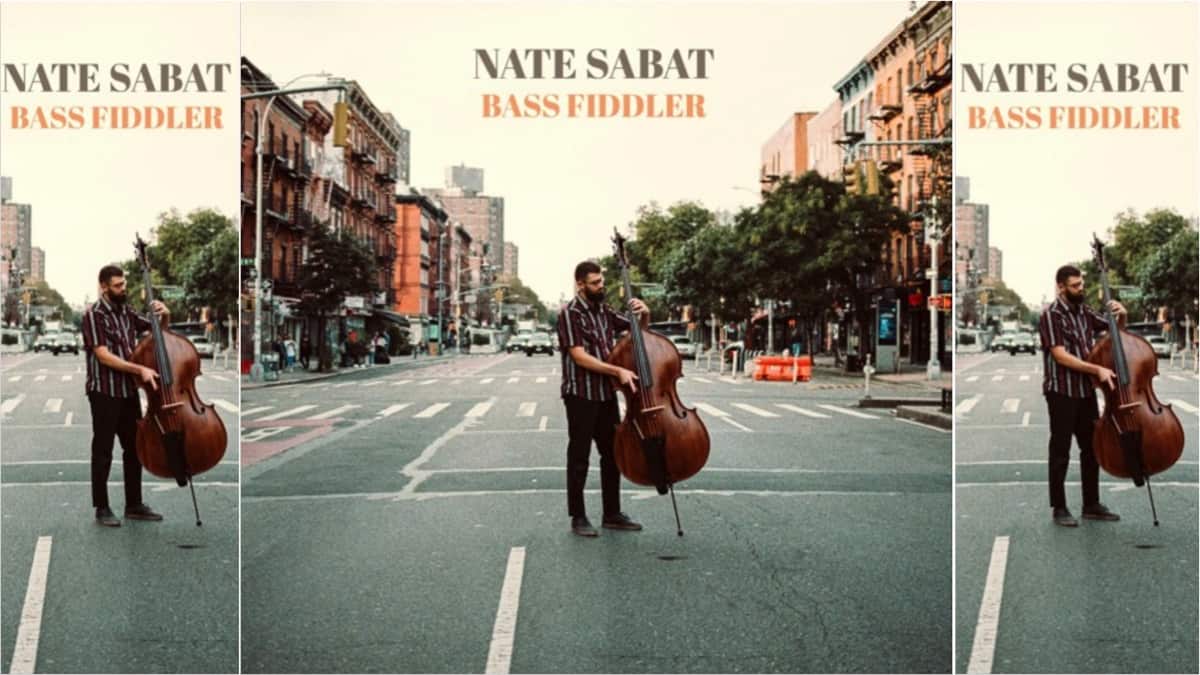Latest
ARTISTS, PERSONS, STARS, COMETS AND ASTEROIDS…. by Igor Saavedra


The universe is fascinating, but is quite dangerous, as we all know. Stars everywhere… growing and intending to swallow their neighbors till they violently collapse and die… the already mentioned radiation… the comets and the asteroids that only know about speed, speed and more speed… well you know what I mean.
There are no ideal situations in life, and the trick is being able to see goodness, beauty and beneficial things everywhere, even where they are hard to find. Every music activity is always deeply related with business nowadays, so actually you see the brands cooperating with musicians and musicians cooperating with the brands. Brands make really enormous efforts to be able to show their products to their future customers. I really admire those courageous businessmen that try to sell musical instruments, amplifiers and every product related with music, considering that they will probably make more money selling fried potatoes, and I’m not kidding.
Getting into the musical business is an incredible adventure where those businessmen, who generally love music and have great respect for artists, have to deal with an enormous amount of variables. They are usually able to deal very effectively with all the commercial aspects, but at the same time they have to deal with a very special subject that is very abundant on this context, for whom they have to become experts in Astronomy and Quantum Physics, because many times they will have to make use of their enormous astronomic expertise and their skills to be able to “Deal with the Stars”.
What is “A Star” in this context and how do we define it?
In my humble opinion, “A Star” is a bipedal organism that is absolutely self-conscious, and at the same time “somehow knows” that the universe rotates around it, in fact most of the time the “Stars” don’t even realize that they see their very own existence this way, but always act accordingly to this precept.
Specifically, “Music Stars” “Somehow know” that they are really special; they think for example that you can’t compare them to a “normal” guy that works in a bank, or the guy at the gas station, or really anybody. They wouldn’t be able to “sacrifice” a little scratch on their fingers to help or collaborate with a friend that’s cutting some roses on the garden or fixing the roof at the house, because “that was not meant for them”, maybe an engineer, a doctor or a businessman can do that, but not them.
A Music Star talks “all the day” & “everyday” about music and usually (not always) knows nothing or little about the rest of the things in life, which by the way is the 99.9% of life.
In order to become a real artist, but I mean “A real artist” like Michelangelo for example, you can’t just focus on the very art you develop, you must be able to put it in “The Center” of everything you do, which is something absolutely different, and once you achieved placing it right there, acting as a point of gravity for all the activities of your life, then you have to nurture that Art, you have to feed it… How? Well… with the 99.9% that surrounds it. And if you don’t care about that 99.9%, what happens then?
Several years ago I wrote a short reflection regarding this matter that I’ll intend to translate effectively for you.
If life would be just about music, what are we going to sing, play and compose about?
Regarding comets and asteroids…
“Music Stars”, especially when it comes to instrumental, contemporary jazz and fusion music where they can choose whether to play fast or not, usually have the desperate tendency to mutate from the state of “Stars” to the state of comets or asteroids, that means allowing high speeds to become the most relevant issue for them, so relevant and important that, once again, they don’t even realize how this craziness destroys any beauty on their musical speech. When they play like that, many times without even noticing it, they are literally collapsing every aesthetic statement that humanity has been building for millenniums.
Not everything has to be fast…
Getting deeper about the “Speed” issue, here comes a nice paradox. Because I’ve been dedicating a big part of my musical studies and developments to create and develop a bass-finger technique so efficient that “Unintentionally” allows the musician to play at incredible speeds, but the most important aspect being that it requires no effort. It’s very important to add this comment on this context, because the guys that complain all day about those musicians that only know about playing fast are usually very handicapped themselves on that specific matter, so they just don’t become credible for anybody. We all know those guys, well, that’s not my case…
With this comment I’m not even getting close to proposing that I’m a good player, so please don’t misunderstand me, speed is a quantifiable variable. I said one time that the Vectorial Synthesis Technique is a finger pizzicato technique that allows me to move across the fingerboard in a solo situation playing clean sixteen notes at speeds close to 300 bpm. The reason you don’t see me showing this “achievements” on YouTube is exactly the one for writing this article. And I repeat, that doesn’t make me better than any other fellow musician; my statement is heading to a complete different direction over here (smile). In fact, if I would not take control of this variable (as I think I’ve done already) the overuse of that ability would have had the power to transform me into the worst bass player on the planet.
So when to play fast then?
Easy, when the situation requires it… and that’s not very often really. You have mainly two forms to increase the amount of energy on a musical statement, “Speed and Dynamics”… and your common sense. Musical criteria and aesthetical notion will define when and how much. By the way, studying a little bit about Aesthetics Theory won’t hurt you at all (smile).
I admit that sometimes I get into speed craziness depending on the solo and the situation, but it’s enough with just a couple of seconds of that orgasmic explosion and that’s it… What’s the need to keep playing like that for an entire concert? I can just say that when it comes to Aesthetics Theory, that’s a real good example for the concept of ugliness. I admit that sometimes I have had the temptation to respond to the zillion notes some colleagues throw on my face on many situations, but 90% of the times I avoid it, I just want to be a good artist, try that at home folks, is much healthier.
Having talked a little bit about comets and asteroids, let’s get back to the Stars!
I have to admit (and you can quote me on this), that “I feel absolutely uncomfortable even if I get a little bit close to a Star”, I start sweating and my muscles turn stiff immediately, it might be the radiation I think, but when they start talking, wooooww, that’s another thing, that’s the moment when my worst nightmares come true.
Generally Stars are absolute beings, to start “They are the bests”, and if for some miracle they think they’re too tired of being the best for so many years, they have the power to decide who the best is now. On my last tour I was introduced to the “10 best guitar players in the world”, “10 best bass players in the world”, and “10 best drummers in the world”, can that be possible?? If my little knowledge about logic doesn’t lie to me, this is an impossible statement…
Closing words…
There’s people in this world that enjoy behaving as “Stars”, they just love it and think that this is perfectly ok because they are so special that they just deserve so everything is fine and cool….
The only thing I can say regarding that, and is just my opinion, is that “Stars” are handicapped people that have lost any contact with reality, delirious beings; toxic organisms that feel they are bigger than the very art they dedicate their lives to, poisonous organisms that have the power to easily spread their venom, which consists on a radioactive toxin that make people start thinking and feeling as “Stars” too.
Keep at a healthy distance from them and focus on really important things… help a friend to cut the roses from his garden or fix his roof, and if the price for that is taking the risk of harming or twisting a finger, believe me it’s completely worth it because life is something you have to fully experiment with… all the goodness and the badness, so then you can have something to say and to express in your music! It’s not the first time I have said this, I know, but here I go again… “Before trying to be a great musician and a complete artist, start trying to become a complete and ethical person…”
See you on the next…
Bass Videos
Interview With Bassist Erick “Jesus” Coomes

Bassist Erick “Jesus” Coomes…
It is always great to meet a super busy bassist who simply exudes a love for music and his instrument. Erick “Jesus” Coomes fits this description exactly. Hailing from Southern California, “Jesus” co-founded and plays bass for Lettuce and has found his groove playing with numerous other musicians.
Join us as we hear of his musical journey, how he gets his sound, his ongoing projects, and his plans for the future.
Photo, Bob Forte
Featured Videos
Visit Online
www.lettucefunk.com
IG @jesuscsuperstar
FB@jesuscoomes
FB @lettucefunk
Bass Videos
Working-Class Zeros: Episode #2 – Financial Elements of Working Musicians

Working-Class Zeros: Episode #2 – Financial Elements of Working Musicians
“These stories from the front are with real-life, day-to-day musicians who deal with work life and gigging and how they make it work out. Each month, topics may include… the kind of gigs you get, the money, dealing with less-than-ideal rooms, as well as the gear you need to get the job done… and the list goes on from there.” – Steve the Bass Guy and Shawn Cav
Latest
This Week’s Top 10 Basses on Instagram

Check out our top 10 favorite basses on Instagram this week…
Click to follow Bass Musician on Instagram @bassmusicianmag
FEATURED @foderaguitars @overwaterbasses @mgbassguitars @bqwbassguitar @marleaux_bassguitars @sugi_guitars @mikelullcustomguitars @ramabass.ok @chris_seldon_guitars @gullone.bajos
Bass CDs
New Album: Jake Leckie, Planter of Seeds

Bassist Jake Leckie and The Guide Trio Unveil New Album Planter of Seeds,
to be released on June 7, 2024
Planter of Seeds is bassist/composer Jake Leckie’s third release as a bandleader and explores what beauty can come tomorrow from the seeds we plant today.
What are we putting in the ground? What are we building? What is the village we want to bring our children up in? At the core of the ensemble is The Guide Trio, his working band with guitarist Nadav Peled and drummer Beth Goodfellow, who played on Leckie’s second album, The Guide, a rootsy funky acoustic analog folk-jazz recording released on Ropeadope records in 2022. For Planter of Seeds, the ensemble is augmented by Cathlene Pineda (piano), Randal Fisher (tenor saxophone), and Darius Christian (trombone), who infuse freedom and soul into the already tightly established ensemble.
Eight original compositions were pristinely recorded live off the floor of Studio 3 at East West Studios in Hollywood CA, and mastered by A.T. Michael MacDonald. The cover art is by internationally acclaimed visual artist Wayne White. Whereas his previous work has been compared to Charles Mingus, and Keith Jarrett’s American Quartet with Charlie Haden, Leckie’s new collection sits comfortably between the funky odd time signatures of the Dave Holland Quintet and the modern folk-jazz of the Brian Blade Fellowship Band with a respectful nod towards the late 1950s classic recordings of Ahmad Jamal and Miles Davis.
The title track, “Planter of Seeds,” is dedicated to a close family friend, who was originally from Trinidad, and whenever she visited family or friends at their homes, without anyone knowing, she would plant seeds she kept in her pocket in their gardens, so the next season beautiful flowers would pop up. It was a small altruistic anonymous act of kindness that brought just a little more beauty into the world. The rhythm is a tribute to Ahmad Jamal, who we also lost around the same time, and whose theme song Poinciana is about a tree from the Caribbean.
“Big Sur Jade” was written on a trip Leckie took with his wife to Big Sur, CA, and is a celebration of his family and community. This swinging 5/4 blues opens with an unaccompanied bass solo, and gives an opportunity for each of the musicians to share their improvisational voices. “Clear Skies” is a cathartic up-tempo release of collective creative energies in fiery improvisational freedom. “The Aquatic Uncle” features Randal Fisher’s saxophone and is named after an Italo Calvino short story which contemplates if one can embrace the new ways while being in tune with tradition. In ancient times, before a rudder, the Starboard side of the ship was where it was steered from with a steering oar. In this meditative quartet performance, the bass is like the steering oar of the ensemble: it can control the direction of the music, and when things begin to unravel or become unhinged, a simple pedal note keeps everything grounded.
The two trio tunes on the album are proof that the establishment of his consistent working band The Guide Trio has been a fruitful collaboration. “Santa Teresa”, a bouncy samba-blues in ? time, embodies the winding streets and stairways of the bohemian neighborhood in Rio de Janeiro it is named for. The swampy drum feel on “String Song” pays homage to Levon Helm of The Band, a group where you can’t always tell who wrote the song or who the bandleader is, proving that the sum is greater than the individual parts. Early jazz reflected egalitarianism in collective improvisation, and this group dynamic is an expression of that kind of inclusivity and democracy.
“The Daughters of the Moon” rounds out the album, putting book ends on the naturalist themes. This composition is named after magical surrealist Italo Calvino’s short story about consumerism, in which a mythical modern society that values only buying shiny new things throws away the moon like it is a piece of garbage and the daughters of the moon save it and resurrect it. It’s an eco-feminist take on how women are going to save the world. Pineda’s piano outro is a hauntingly beautiful lunar voyage, blinding us with love. Leckie dedicates this song to his daughter: “My hope is that my daughter becomes a daughter of the moon, helping to make the world a more beautiful and verdant place to live.”
Bass CDs
Debut Album: Nate Sabat, Bass Fiddler

In a thrilling solo debut, bassist Nate Sabat combines instrumental virtuosity with a songwriter’s heart on Bass Fiddler…
The upright bass and the human voice. Two essential musical instruments, one with roots in 15th century Europe, the other as old as humanity itself.
On Bass Fiddler (Adhyâropa Records ÂR00057), the debut album from Brooklyn-based singer-songwriter and bass virtuoso Nate Sabat, the scope is narrowed down a bit. Drawing from the rich and thriving tradition of American folk music, Sabat delivers expertly crafted original songs and choice covers with the upright bass as his lone tool for accompaniment.
The concept was born a decade ago when Sabat began studying with the legendary old-time fiddler Bruce Molsky at Berklee College of Music. “One of Bruce’s specialties is singing and playing fiddle at the same time. The second I heard it I was hooked,” recalls Sabat. “I thought, how can I do this on the bass?” From there, he was off to the races, arranging original and traditional material with Molsky as his guide. “Fast forward to 2020, and I — like so many other musicians — was thinking of how to best spend my time. I sat down with the goal of writing some new songs and arranging some new covers, and an entire record came out.” When the time came to make the album, it was evident that Molsky would be the ideal producer. Sabat asked him if he’d be interested, and luckily he was. “What an inspiration to work with an artist like Nate,” says Molsky. “Right at the beginning, he came to this project with a strong, personal and unique vision. Plus he had the guts to try for a complete and compelling cycle of music with nothing but a bass and a voice. You’ll hear right away that it’s engaging, sometimes serious, sometimes fun, and beautifully thought out from top to bottom.”
While this record is, at its core, a folk music album, Sabat uses the term broadly. Some tracks lean more rock (‘In the Shade’), some more pop (‘White Marble’, ‘Rabid Thoughts’), some more jazz (‘Fade Away’), but the setting ties them all together. “There’s something inherently folksy about a musician singing songs with their instrument, no matter the influences behind the compositions themselves,” Sabat notes. To be sure, there are plenty of folk songs (‘Louise’ ‘Sometimes’, ‘Eli’) and fiddling (‘Year of the Ox’) to be had here — the folk music fan won’t go hungry. There’s a healthy dose of bluegrass too (‘Orphan Annie’, ‘Lonesome Night’), clean and simple, the way Mr. Bill Monroe intended.
All in all, this album shines a light on an instrument that often goes overlooked in the folk music world, enveloping the listener in its myriad sounds, textures, and colors. “There’s nothing I love more than playing the upright bass,” exclaims Sabat. “My hope is that listeners take the time to sit with this album front to back — I want them to take in the full scope of the work. I have a feeling they’ll hear something they haven’t heard before.”
Available online at natesabat.bandcamp.com/album/walking-away


















